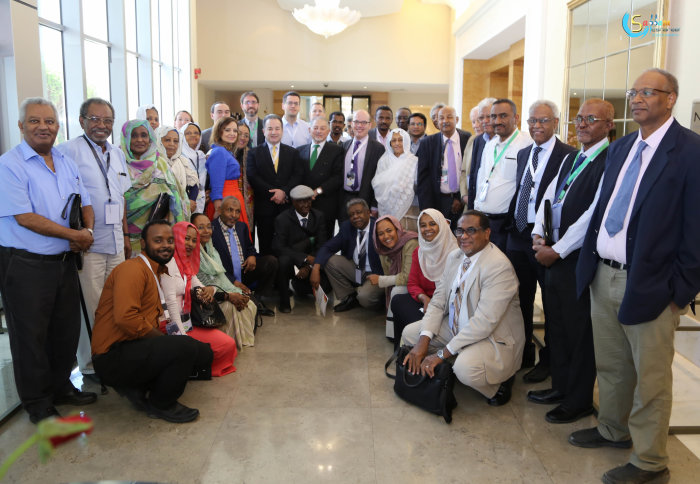Sudan collaborations could help tackle disease in Africa

Imperial academics are collaborating with the University of Khartoum and Ahfad University for Women to address the burden of disease in Sudan.
A symposium, funded by the Haggar Foundation, brought together scientists from the three institutions to exchange ideas and discuss potential collaborations.
During the three-day symposium, academics discussed themes such as women and children’s health, diabetes, kidney disease, Malaria, water sanitation, infectious diseases and antimicrobial resistance
The academics, including the President's Envoy Professor Nadey Hakim, visited the University of Khartoum Faculty of Medicine, the Ahfad University for Women and Soba University Hospital during the trip.

The symposium was opened by Mr. Anis Haggar, Chairman, Board of Trustees of the Haggar Foundation.
The trip was led by Professor Simon Taylor-Robinson, from the Department of Surgery & Cancer, who said: “The ambition of this symposium was to bring scientists together to discuss ways to reduce the burden of disease in Sudan.
“Imperial academics presented their research and discussed challenges such as water-related diseases, diabetes, cancer and infectious disease.
“Imperial's excellence arises from working with leading institutions from across many different regions and we are looking forward to further exploring potential ways we can collaborate with partners in Sudan.”
Further Symposiums are planned, later in the year, to address other tropical diseases.
Imperial's Sudanese connections

There are 116 Imperial alumni living in Sudan and the College has had dozens of students in the last five years.
Imperial’s Department of Civil Engineering has an ongoing agreement with the University of Khartoum through which they offer the Professor Shawki Saad Scholarship, a PhD scholarship for graduates of the University of Khartoum to study at Imperial.
Imperial’s WHO Collaborating Centre in Public Health Education and Training, led by Professor Salman Rawaf, worked with the Sudanese Federal Ministry of Health and the Public Health Institute to support the finalisation of the family medicine policy.
Article text (excluding photos or graphics) © Imperial College London.
Photos and graphics subject to third party copyright used with permission or © Imperial College London.
Reporter
Stephen Johns
Communications Division